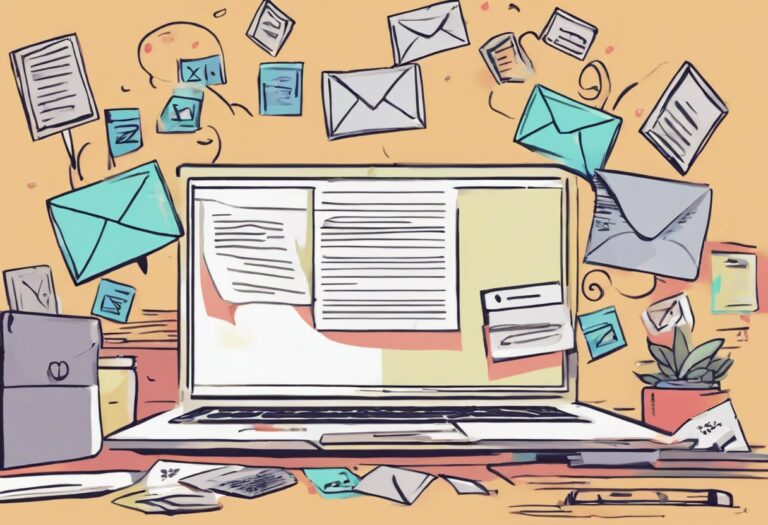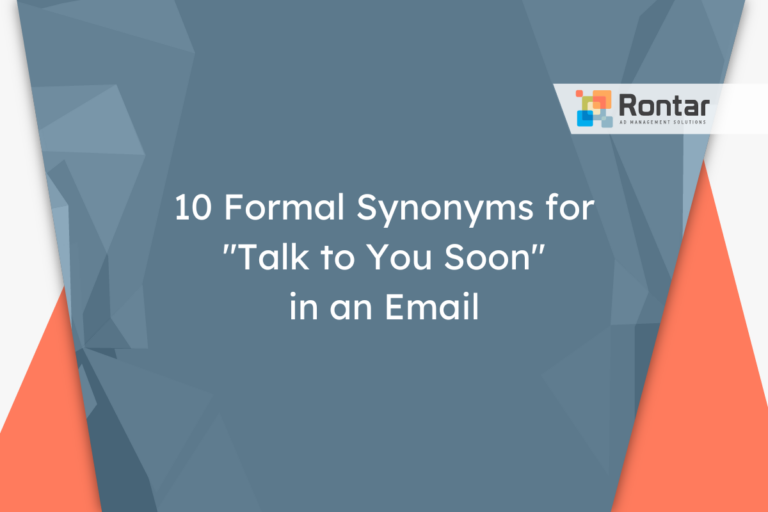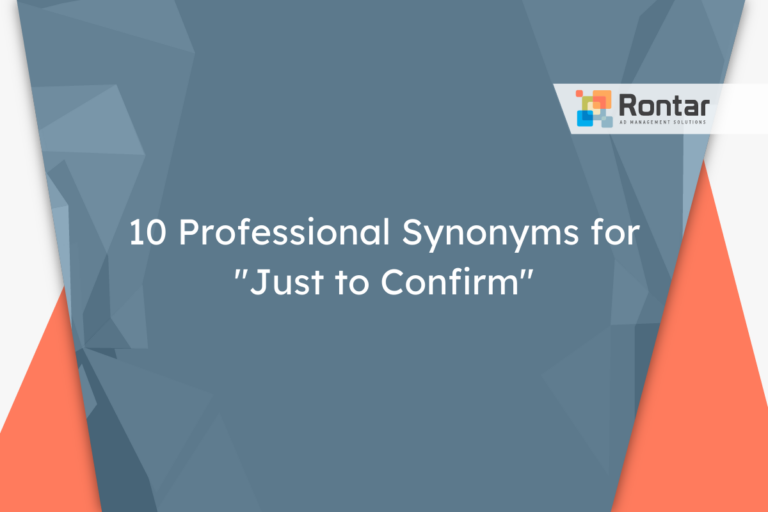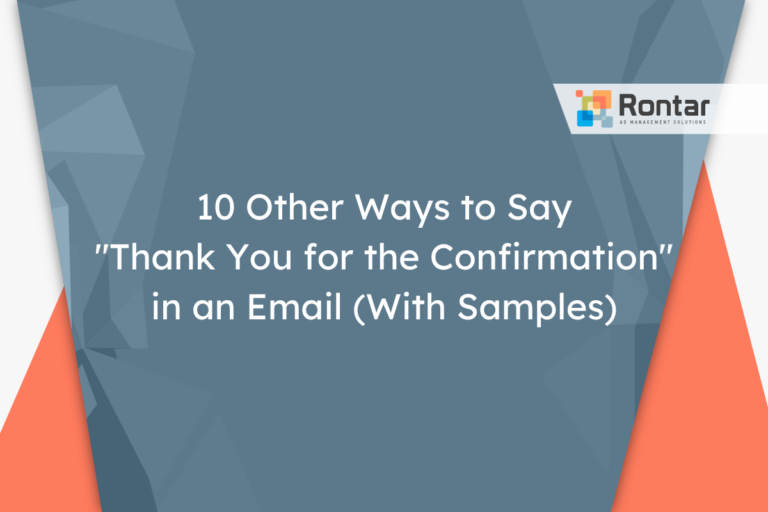11 Other Ways to Say “Please Disregard My Previous Email” (With Examples)
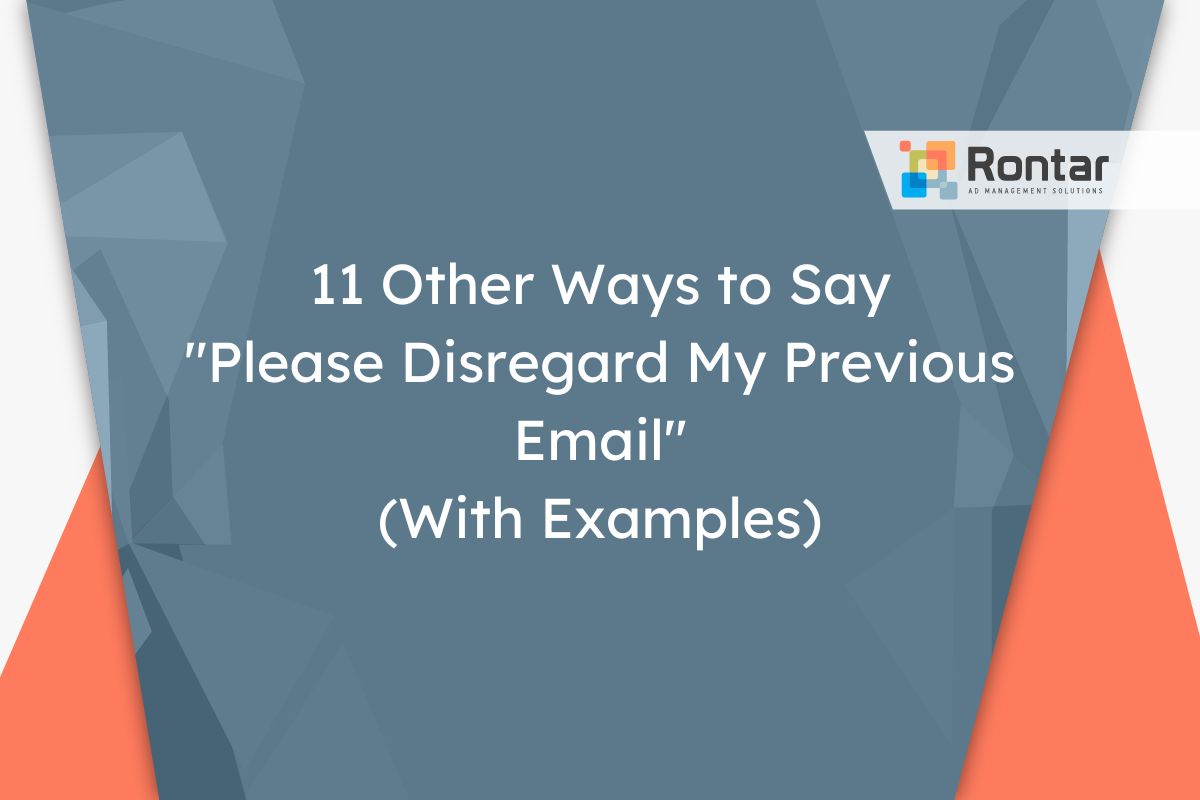
Have you ever sent an email too quickly and then found a mistake? You’re not alone. Saying “Please disregard my previous email” can fix it, but there are many other ways to get the job done.
This article gives you eleven different phrases to use, helping you clear up any email mistakes with polite and professional alternatives.
Is It Professional to Say “Please Disregard My Previous Email”?
When it comes to email etiquette, using the phrase “Please disregard my previous email” can be seen as professional, formal, and polite. However, its appropriateness largely depends on the context in which it’s used, the recipients, and the communication medium.
This phrase is most suitable in professional settings when you need to correct a mistake or update information previously sent. It’s polite and direct, providing a clear instruction to the recipient. It’s most effective in emails sent within a workplace, to clients, or in any other professional correspondence. However, for informal settings or personal emails, other phrases might be more suitable, depending on the relationship and communication style with the recipient.
Here’s an example of how to use it:
Hi Benjamin, Please disregard my previous email—I realized I included incorrect details about the upcoming conference dates. I'll send a corrected version shortly. Thank you for your understanding. Best regards, Emily Henderson
Pros:
- It quickly tells the recipient there was a mistake, potentially avoiding confusion.
- It’s clear and to the point, saving time for both sender and receiver.
- It maintains professionalism and respect, acknowledging the error.
Cons:
- It can be formal and might not fit all types of email communications, especially more casual ones.
- If overused, it might reflect poorly on the sender’s attention to detail.
- It doesn’t provide any information about the correction, leaving the recipient momentarily in confusion.
While this phrase is effective, someone might want to use an alternative to better suit the tone of their message or relationship with the recipient. Finding the right synonym or alternative can also prevent the email from sounding too formal or impersonal in a context that doesn’t require it.
11 Other Ways to Say “Please Disregard My Previous Email”
Looking for a different way to tell someone to ignore your last message? Here are eleven alternatives:
- Please ignore my last email
- Kindly ignore my previous email
- Consider my last email withdrawn
- You may disregard my previous email
- Please pay no attention to my previous email
- You can disregard my previous email
- My earlier email is no longer valid
- Please ignore the content of my previous email
- Kindly disregard the information in my previous email
- Please treat my previous email as if it was never sent
- My last email is no longer relevant, please ignore
1. Please ignore my last email
Compared to the original phrase, “Please ignore my last email” is more direct and slightly less formal. It’s still polite and professional but has a touch of informality that makes it suitable for a wider range of situations.
This alternative is best in situations where you quickly want to correct a minor mistake. It works well with coworkers or clients you have a friendly relationship with. It’s a good choice for emails and instant messages where brevity is appreciated.
Here’s a quick example:
Hi Alex, Please ignore my last email, there was a mistake in the dates I provided. I will send over the updated project timeline shortly. Best, Samantha
2. Kindly ignore my previous email
This phrase adds a touch of kindness to the request, making it more polite than the straightforward “please ignore…” It’s slightly more formal, fitting for professional settings, yet gentle enough not to seem overly stern.
This synonym is suitable when you want to ensure the recipient feels respected. It’s excellent for communicating with clients, especially in more formal industries, or when emailing someone you don’t know well. It works well in emails and formal letters.
Let’s look at a sample message:
Hello Mr. Thompson, Kindly ignore my previous email, as it contained outdated information. I'll send an updated version shortly. Warm regards, Laura
3. Consider my last email withdrawn
This phrase suggests a more formal and almost legal tone. By saying “withdrawn,” it’s as if you’re taking back what was said officially. It’s formal and very professional, suited for high-stakes situations where precision is key.
It’s best for formal communications or when dealing with sensitive matters. It fits legal, financial, or high-level business communications. Using it in emails or official documents where retracting a statement officially is required would be ideal.
Here’s an example:
Dear Committee Members, Consider my last email withdrawn. Upon review, we’ve noticed an error in the figures reported. A corrected update will follow shortly. Sincerely, George
4. You may disregard my previous email
This alternative has a casual yet polite tone. It grants the receiver permission to ignore the prior message. This choice strikes a balance between professionalism and accessibility, making it versatile.
This is great for both internal and external communications with a less formal vibe. It’s suitable for emails to colleagues or industry partners where the relationship isn’t overly formal. Text messages and instant messages could also carry this phrase well.
Here’s how it could be used:
Hi team, You may disregard my previous email regarding the original timeline. The updated meeting schedule for next week will follow shortly. Cheers, Mike
5. Please pay no attention to my previous email
This phrase is slightly more emphatic, making it clear that the previous message is entirely irrelevant. It’s polite yet direct, and while it leans towards the formal side, it’s not out of place in less formal emails either.
It suits situations where the original email contained a significant mistake. It’s effective in both workplace emails and more formal communications when you need to ensure there’s no confusion about disregarding the initial info.
Here’s a sample for this:
Dear Partners, Please pay no attention to my previous email, as the details have now changed. Please expect another email from me shortly. Best regards, Diana
6. You can disregard my previous email
This option is casual and straightforward, making it polite but very approachable. It’s less formal and more suited to everyday work correspondence or messages between acquaintances.
This alternative works best in casual or semi-formal emails, especially within teams that communicate frequently. It’s also suitable for texts or any digital communication tool used internally within companies.
Here’s what it looks like in use:
Hey there, You can disregard my previous email, got my dates mixed up. Thanks, Tyler
7. My earlier email is no longer valid
This phrase suggests a total invalidation of the previous message. It’s professional and formal, implying that the information is completely outdated or incorrect.
This is particularly suited for situations where crucial updates have rendered the previous message irrelevant. Ideal for emails concerning policy changes, appointment updates, or any scenario where new information completely replaces the old.
Example:
Dear Colleagues, Important notice regarding the policy changes I forwarded last week. My earlier email is no longer valid, please await further instructions. Regards, Fiona
8. Please ignore the content of my previous email
This alternative is direct and clearly communicates that the specifics of the prior message should not be considered. It’s professional and polite, suitable for situations where a detailed correction is to follow.
It’s best used when incorrect information could cause confusion or wrong actions. It’s effective in emails to colleagues and external contacts, especially when a follow-up with correct details is promptly provided.
And the example:
Dear Client, Regarding our discussion on the upcoming project launch dates. Please ignore the content of my previous email. An update with accurate details will be forthcoming. Sincerely, Emma
9. Kindly disregard the information in my previous email
This phrase elevates the level of politeness by incorporating “kindly.” It leans formal but retains a friendly tone, making it appropriate for a wide range of professional settings.
This version is ideal for communications where you wish to soften the message’s tone, especially with clients or senior management. It’s effective in emails and written correspondences where respect and courtesy are paramount.
Example email:
Hello Dr. Jacobs, I’m writing to correct an error in the briefing sent yesterday. Kindly disregard the information in my previous email. The correct briefing will follow shortly. Warmest regards, Natalie
10. Please treat my previous email as if it was never sent
This phrase is a more dramatic way of instructing the recipient to completely overlook the prior message. Its tone is polite yet conveys the importance of ignoring the previous email entirely. It hints at formality but with an earnest request.
Useful in scenarios where a significant error needs addressing or sensitive information was accidentally shared. It’s best in emails, particularly to superiors or clients, where rectifying a mistake respectfully is crucial.
Here’s an email example:
Dear Mrs. Larson, In my haste, I sent out an email with incomplete information. Please treat my previous email as if it was never sent. A revised email with all the necessary details will be sent your way shortly. Best, Oliver
11. My last email is no longer relevant, please ignore
This alternative straightforwardly declares the previous message obsolete. While polite, it’s a bit more casual and gets straight to the point. It’s formal enough for most professional interactions but doesn’t feel overly rigid.
It’s excellent for quickly moving past the old message in favor of updated information, suitable for internal emails, informal client updates, or any situation where a quick correction is favored over intricate details.
Here’s an example:
Team, Updates on the project timeline have changed since my last message. My last email is no longer relevant, please ignore. Look out for a new update soon. Thanks, Jasper
Final Thoughts
Sending the wrong email happens to the best of us, but how we handle it can make a big difference. The alternatives provided above offer different ways to address mistakes, showing respect and professionalism. Depending on who you’re emailing and the mistake’s nature, choosing the right phrase helps maintain good communication.
Next time you need to backtrack on an email, one of these options should help you smoothly move past the error.

